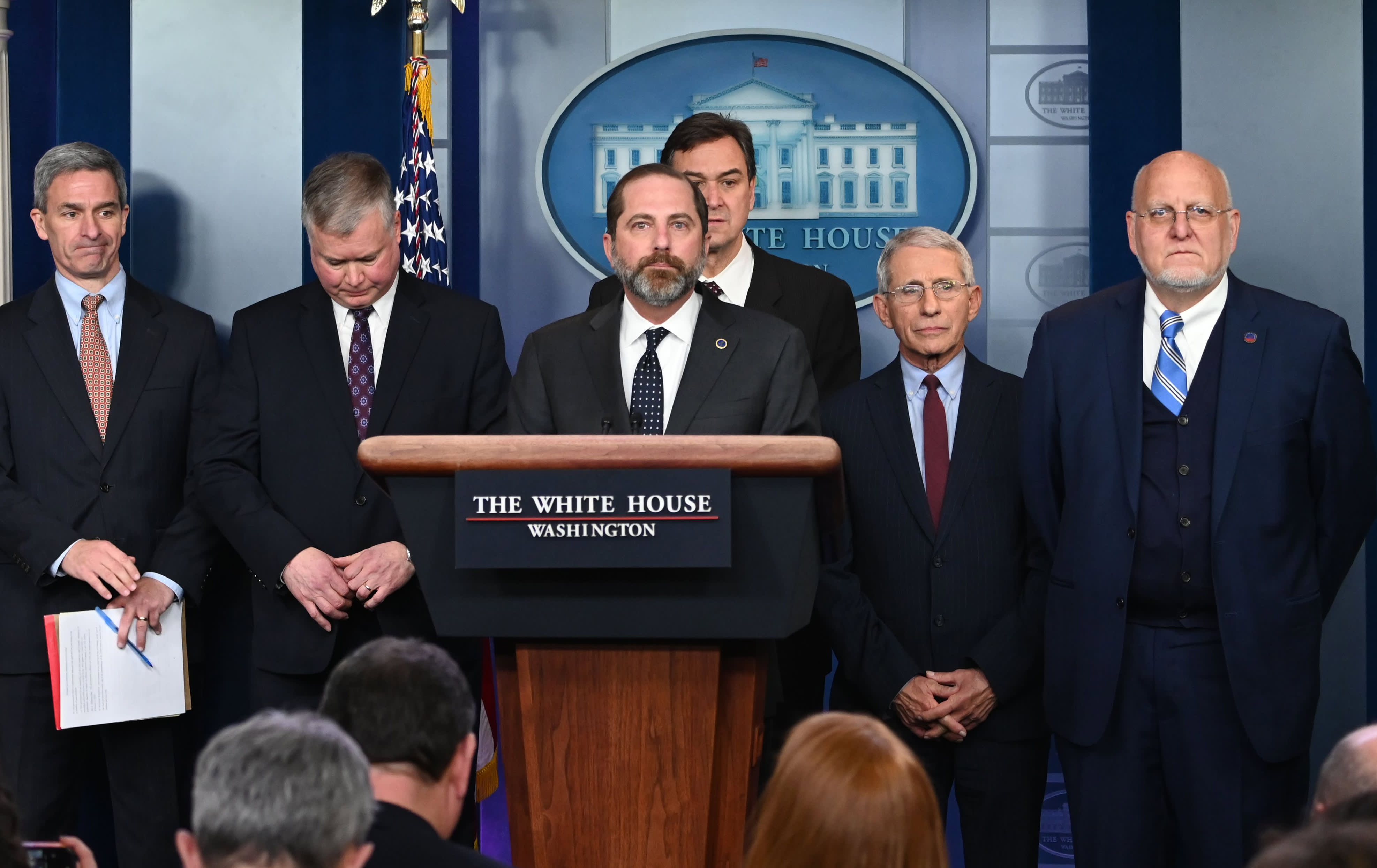
The Trump administration on Friday declared the coronavirus a public health emergency in the United States, and announced that certain foreign nationals deemed to pose a risk of transmitting the disease will temporarily be denied entry to the U.S. Some returning American citizens potentially at risk will be quarantined.
Health and Human Services Secretary Alex Azar said that President Donald Trump signed an order for the U.S. to deny entry to any foreign nationals who have traveled in China within the past two weeks, aside from the immediate family of U.S. citizens.
Azar, speaking to reporters at the White House, also said that any U.S. citizens who have been in China’s Hubei province — home of Wuhan, the epicenter of the virus — within the last 14 days “will be subject to up to 14 days of mandatory quarantine to ensure they’re provided proper medical care and health screening.” Also starting Sunday, U.S. citizens returning from other parts of mainland China will also face screenings and two weeks of monitoring and self-quarantine.
The risk to the American public is “low” at this time, said Robert Redfield, director of the Centers for Disease Control and Prevention.
Azar called the measures “fairly incremental” and “appropriate, preventative steps.” Yet, officials said they wanted to ensure it would remain a low risk to Americans.
Ken Cuccinelli, acting Homeland Security deputy secretary, another member if the White House task force on the coronavirus, said incoming flights from China will be limited to just seven airports — San Francisco, Los Angeles International Airport, Seattle, New York’s John F. Kennedy International Airport, Atlanta, Honolulu and Chicago’s O’Hare — beginning Sunday.
The briefing came as markets plunged over fears about the fast-spreading virus’ potential economic impact.
The Trump administration officials noted a sharp drop in passenger traffic between the U.S. and China but that U.S.-bound traffic was more resilient as American citizens return. On Friday, U.S. airlines announced they would halt their mainland China service. Delta, United and American announced they would suspend all remaining service to mainland China after a State Department warning put a damper on demand for flights there.
Dozens of other large U.S. corporations, including Apple, Ford and Kraft Heinz, have already restricted their employees’ China business travel or scaled back operations because of the outbreak.
Air traffic between the U.S. and China has surged in the last decade. In 2009, there were more than 4,880 flights a year between the two countries and more than 17,760 last year, according to consulting firm ICF.
Dozens of airlines around the world have curtailed or halted China service, leaving the country increasingly isolated.
Airlines have said ticket sales for China have dropped sharply, a trend that will likely dent their first-quarter revenues.
The briefing included members of President Donald Trump’s coronavirus task force, which includes national security advisor Robert O’Brien, Azar and other leading officials.
Earlier Friday, the Centers for Disease Control and Prevention quarantined 195 Americans who have been evacuated from Wuhan.
As of Friday afternoon, the coronavirus had infected roughly 10,000 people across the globe. In China, the virus is responsible for at least 213 deaths.
Redfield added at the White House news briefing Friday that 191 people in the U.S. are being investigated for the disease.
Correction: Ken Cuccinelli is acting deputy secretary of the Department of Homeland Security. An earlier version misstated his title.



